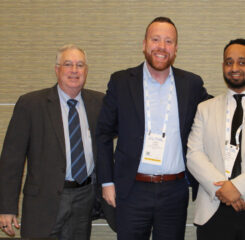Amicus Brief: Protect Nonprofit Low Income Housing Tax Credit Housing
Earlier this week, LeadingAge joined an amicus brief in support of the Opa-locka Community Development Corporation, a Florida nonprofit struggling in court to retain its rightful ownership of affordable housing that is home to about 500 residents. The brief was written by the National Housing Law Project in partnership with the National Housing Trust and other organizations.
As has happened to other nonprofit general partners of housing financed with low income housing tax credits, aggressive investors are forcing nonprofits out of their planned and assumed eventual total ownership of the housing. Many of these cases have landed in the courts, where nonprofits are spending hundreds of thousands of dollars to keep the housing that has always been theirs, like in the Opa-locka case where the aggressive investor is trying to force the nonprofit to sell the housing on the private market so it can partake in some of the proceeds. But, Opa-locka does not wish to sell.
It is a small portion of low income housing tax credit properties that end up in this or a similar situation, including too many LeadingAge members who have been or are currently in litigation fighting to keep their rightful housing
The issue is starting to get some of the national attention it deserves, with two public radio pieces in the last couple of weeks and inclusion of a partial fix in a Senate bill expected this month.
At LeadingAge’s annual meeting in San Diego almost two years ago, a housing session featured a leading litigator on this topic. This year, we’ve updated a red flags warning piece that may help nonprofits understand if they have reason to worry that their tax credit investor is acting questionably year 15 approaches. After 15 years, investors have reaped all of their tax benefits from the program and may be in search of additional ways to profit from their role as a limited partner.
April 29 and May 7 public radio pieces.
Housing credit “10 Red Flags” for nonprofits.

Most Recommended
October 15, 2025
 Shutdown Week Three: Impact of Ongoing Closure on Affordable Housing
Shutdown Week Three: Impact of Ongoing Closure on Affordable Housing
December 10, 2025
Fiscal Year (FY) Funding 2026
October 07, 2025
Immigrant Workforce Matching Program Brings Workforce Relief
Recently Added
December 17, 2025
 Colleagues on the Move, December 17, 2025
Colleagues on the Move, December 17, 2025
December 16, 2025



